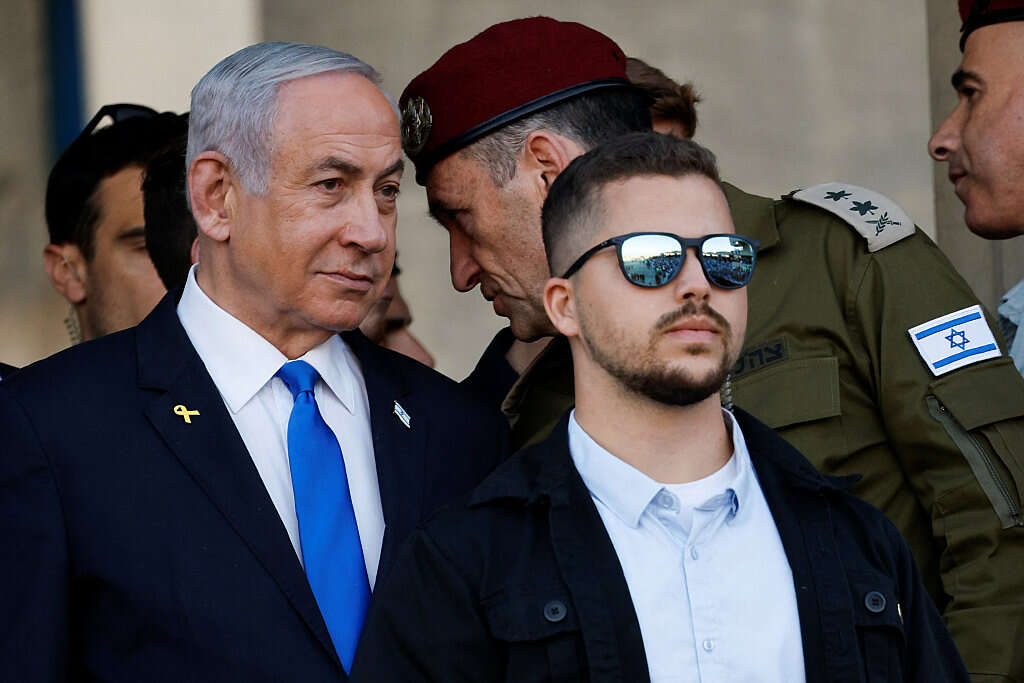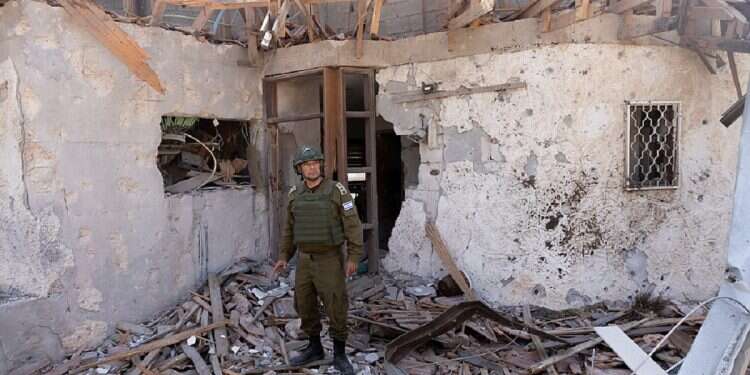The night before the ceasefire took effect, friends from the north visited. During dinner, we spontaneously declared it a celebration marking the end of the war on the northern front. A simple milestone worth remembering – after being trapped for so long by rocket sirens in their community just 4 miles from the border with Lebanon, the drive down the bustling highways to Jerusalem felt like an adventure. The country appeared transformed to them – vibrant and pulsing with energy, almost frenetic, with construction cranes everywhere, buildings rising vertically and spreading horizontally, new roads being paved, and highway interchanges under construction at every turn. A mother remarked that her son, who returned from a month's deployment in Rafah (one of many) and the Philadelphi Corridor, asked her in bewilderment shortly after washing off the dust of Gaza: "Mom, what's happening here? Who is Eli Feldstein?!"
Is the truce good or bad?
First and foremost, it's good. When there's quiet in the north, even for just two days, it typically signals a longer respite, though with some uncertainty. Displaced residents will return. And naturally, the question falls along predictable partisan media lines: Why didn't Prime Minister Benjamin Netanyahu call for their return? Why didn't he mention the residents' homecoming in his Tuesday evening address?
The answer is clear: New Defense Minister Israel Katz declared victory over Hezbollah. While he may have been right, what matters is that Hezbollah still managed to launch numerous large-scale rocket barrages. For political commentators, this alone provided ammunition for mockery – compounded by Katz's tendency to make sweeping and sometimes extreme statements, like his diplomatic crisis-inducing declaration about Polish antisemitism regarding the Holocaust. So Netanyahu chose not to make promises. Additionally, he wanted to maintain strategic ambiguity in the enemy's eyes. The return or continued absence of residents sends signals about Israel's intentions. Without an official announcement, perhaps it reinforces Israel's resolve regarding Hezbollah violations and the possibility of a renewed military response.

Residents will make individual decisions about returning. The extended displacement from their homes, combined with the constant state of alert and rocket sirens, has created a quiet trauma. The same applies to reserve soldiers. Clearly, Israel can now send a significant portion of its reservists home, bolstered by the government's recent decision to extend Order 8 well into 2025. This means Israel remains prepared to resume combat operations when a new, more supportive, and friendly president enters the White House. Will fighting resume in 60 days? Probably not. Everything hinges on how the Iranian situation is handled.
"The war to end war"
The prevailing narrative suggested this would be the final Lebanon war, not the Third Lebanon War. Yes, reminiscent of how the "Great War" of 1914-1918 was supposed to be "the war to end war" – until it became merely "World War I." While absolute security and final wars may be illusions, Israel has achieved a ceasefire it couldn't have imagined before September. Prior to the offensive, security experts and officials – excluding the prime minister – had planned to end the northern attacks and safely return residents through a Gaza ceasefire. Their plan didn't include addressing Hezbollah's infrastructure, leadership, or extensive missile arsenal. Back then, Radwan Force stood at the border fence, mere meters from civilian dining rooms. The contrast with today's reality – separated fronts and a neutralized Hezbollah – is striking.
The triumph of ordinary soldiers
The IDF remains wedded to the notion that "achievement isn't measured in kilometers," as a senior officer recently told me. This means territorial conquest hasn't returned to the military playbook. Instead, the focus remains on destroying targets and infrastructure – tunnels, armaments, weapons, and all types of military equipment. Yet what matters to the enemy should matter to us: controlling territory.
The IDF met this challenge halfway. After Oct. 7, 2023, it recognized the necessity of boots on the ground – paratroopers, armored units, and reserve forces – across Gaza's shifting terrain, from north to south. However, they conducted their campaign through a pattern of repeated cycles of advance and withdrawal, over and over. The psychology behind this approach requires investigation: On one hand, Hamas wasn't credited with the capability to execute operations as dramatic as Oct. 7. The terrorists were viewed as nothing more than construction workers in flip-flops. Yet paradoxically, there was paralyzing fear of ground operations in Gaza – despite Hamas repeatedly demonstrating sophisticated capabilities in kidnappings, tunneling, infiltrations, and willingness to conduct extreme suicide operations.
Once forces entered the Gaza Strip, a new generation of fighters emerged, displaying unprecedented motivation and quality. These soldiers didn't follow the names of legendary heroes at the division or brigade level, nor did they simply march to the orders of top military leadership like the chief of staff. Their drive was internal and collective. The debate continues whether these rank-and-file soldiers pulled their senior commanders forward or pushed them into action. This war had no Ariel Sharons, Moshe Dayans, or Rafael Eitans. Instead, it had countless ordinary heroes who relentlessly pursued the enemy, with the elimination of Yahya Sinwar serving as the prime example.
Who would have believed that in their eagerness to incriminate Netanyahu, some would absolve Sinwar of responsibility for the hostages? The soldiers are the ones who remain laser-focused on their mission, never losing sight of their objective. Meanwhile, the IDF's senior leadership seemed preoccupied with viewing the political echelon – the government minus former Defense Minister Yoav Gallant – as the real adversary whose influence and "deviant" decisions needed neutralizing, to use the term that Shin Bet representative Yoram Cohen reintroduced. The left's embrace of the Shin Bet and its shadowy operations raises troubling questions.
Hertzi's appointments
Defense Minister Katz has reignited public debate over the Chief of Staff Herzi Halevi's questionable practice of making appointments that will shape the army's future for years to come. Lt Gen Halevi's approach to leadership is unusual. He continues making command appointments as if in peacetime. Officer X, having served several lateral positions as brigadier general or colonel, receives a division command simply because it's "their turn." The same applies to brigade commanders.

Consider Brigadier General Guy Hazut's perspective. Among his conclusions from the Oct. 7 catastrophe and the military's broader cultural failure is that the IDF must return to younger command, bringing brigade commanders ages below 40. He advocates for ambitious, dynamic commanders not yet focused on retirement benefits. If a battalion commander who distinguished himself in recent battles can receive a brigade command shortly after, surely a brigade commander who excelled throughout nearly a year of unprecedented warfare deserves division command.
After the Yom Kippur War, Colonel Amnon Reshef, commander of Brigade 14, was promoted to lead Division 162 within six months. Division 162's commander Bren Adan became Southern Command chief shortly after, while Avigdor Ben-Gal immediately advanced to command Division 36. Such moves sent a clear message: battlefield leadership matters more than bureaucratic seniority or whose "turn" has come.
The missing Israeli legal experts
Professor Alan Dershowitz recently announced the formation of a "dream team" of legal experts to defend Israel, Prime Minister Netanyahu, and Defense Minister Gallant before the International Criminal Court. The roster includes former US Attorneys General Michael Mukasey and William Barr, former Canadian Justice Minister Professor Irwin Cotler, former New York Governor and State Attorney General Andrew Cuomo, Mark Levin, and other prominent figures from the American legal world.
Reading through his strategy and list of names, a striking realization emerged: not a single Israeli legal expert made the team. No Israeli lawyers, legal scholars, law professors, retired Supreme Court justices, or even former state attorneys or attorneys general. This suggests one of two possibilities – either they're deemed inadequate, or as one insider in the political-legal battle suggested, they support the prosecution.
The conduct of Israel's justice system – from the Supreme Court down to Netanyahu's trial court and the state attorney who might answer that returning soldier's question about Feldstein – reveals a group remarkably short on patriotic sentiment. Just this week, Judge Ruth Ronnen summoned the prime minister to respond to an incapacitation petition before the Supreme Court. Based on what grounds? None whatsoever. Such unchecked power has only expanded the scope of judicial overreach. Feeling omnipotent, she no longer bothers to ground her reasoning in law, constitution, or precedent.
Despite this disconnect at the heart of Israel's elite, the country must soon launch a campaign to delegitimize the Hague courts. Since South Africa filed its petition nearly a year ago, the proceedings against Israel and its leaders have become as significant as the UN's 1975 resolution equating Zionism with racism. Back then, Israel had effective advocates: Ambassador (later President) Chaim Herzog, Ambassador (later Prime Minister) Benjamin Netanyahu, and allies like US Ambassador to the UN Daniel Patrick Moynihan.
Today we're left with Netanyahu and Amos Schocken. The Hague issue demands a massive response – it represents the essence of the cultural war underlying Israel's existence. Today's world shows even greater sympathy for terrorism than in the 1970s. Is Dershowitz's approach correct? While it might help Israel, it inherently legitimizes an international legal system that has become a key component in the terror strategy of Iran, Palestinian organizations, the antisemitic terrorist left, and Russia's allies like South Africa.
What's needed is an exceptional legal team to confront the governments of France, Britain, Holland, and other terrorism enablers, proving that their arrest warrants and case against Israel are malicious and violate international law – if such a thing even exists.
The Haaretz phenomenon
"I love many people at Haaretz and identify with many of its positions, but its cartoonish anti-Israel and antisemitic stance is wearing thin," prominent American journalist Jeffrey Goldberg wrote eight years ago, explaining his decision to cancel his subscription. Goldberg noted that Haaretz shares something with the Jerusalem Post – "a weakness for baseless hatred."
Responding to criticism from a well-known writer, Goldberg explained: "When neo-Nazis start sending me emails with links to Haaretz editorials declaring Israel an evil state, it's time for a break." This troubling pattern has only intensified under Gideon Levy's leadership, with author Eva Illouz contributing her own takes on Israeli "evil." Anyone monitoring Hamas media channels knows that Haaretz enjoys popularity not only among neo-Nazis globally but also with Hamas itself.
Sometimes exposing colleagues' ignorance becomes necessary, even with friendly acquaintances. If Goldberg labeled Haaretz antisemitic, who am I to dispute it? A lengthy conversation with Gideon Levy years ago revealed his startling ignorance of basic facts. Take the Six-Day War: "How many died in that war?" he asked, suggesting "120, 150 people?" When corrected that nearly 800 died in just one week, he responded, "Really? I didn't know." He then declared, "The Holocaust isn't relevant. Only the 'Nakba' matters." And the checkpoints.
The greatest damage stems from his hypnotic influence over loyal readers. This wasn't always the case. While the newspaper always carried a nihilistic, decadently morbid tone, readers could once maintain a critical distance. Now readers parrot its lines like actors reciting a script, complete with rehearsed talking points.




